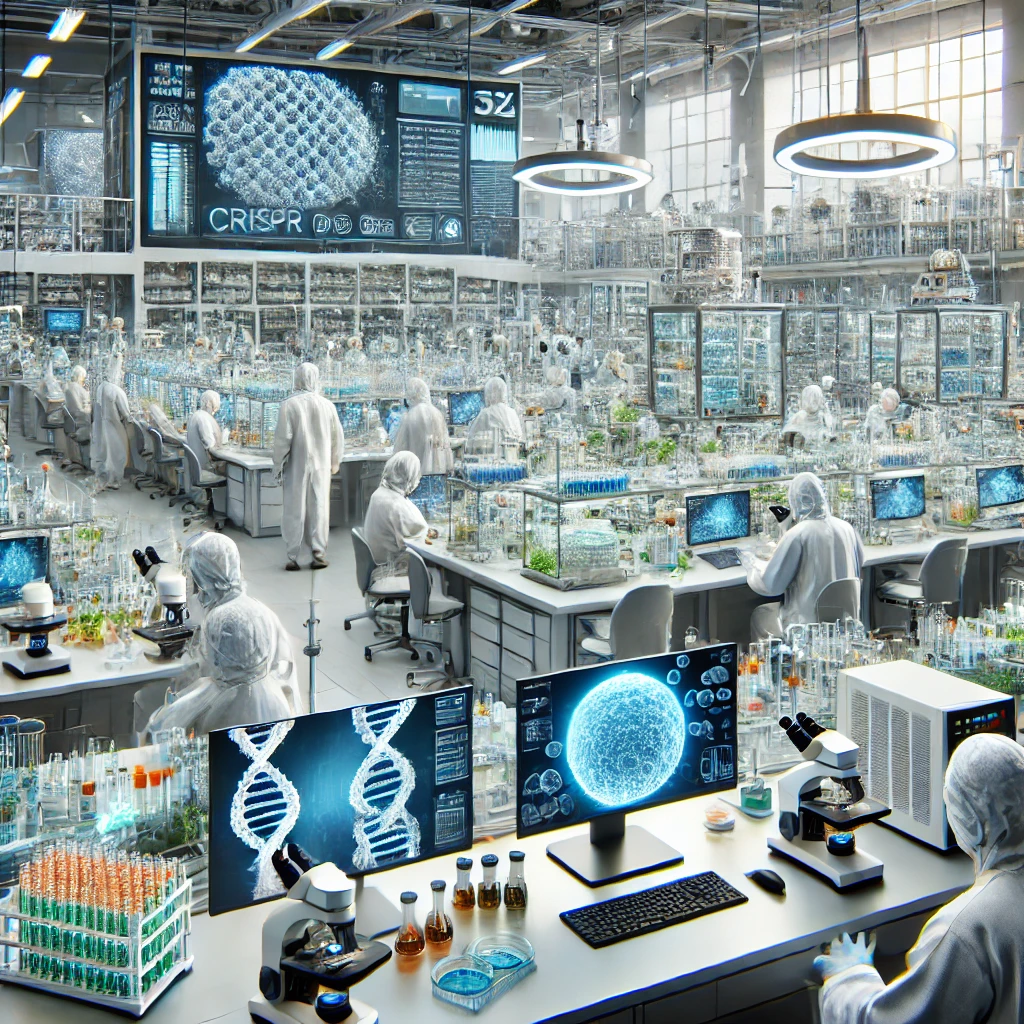Exploring the Future of Biotechnology and Pharmaceuticals in 2024
As we delve into 2024, the biotechnology and pharmaceutical industries are at the forefront of medical innovation, driven by advancements in gene editing, artificial intelligence (AI), biosimilars, and other cutting-edge technologies. These developments are not only reshaping the way we approach drug discovery and treatment but are also addressing some of the most challenging health issues facing the world today.
The Rise of AI in Drug Discovery
Artificial intelligence is increasingly becoming a critical tool in the pharmaceutical industry, particularly in drug discovery. AI’s ability to analyze vast amounts of data and identify patterns is helping researchers prioritize drug targets and streamline the development process. For instance, AI is being used to predict which patient populations are most likely to benefit from certain therapies, enabling more personalized treatment approaches.
However, the rapid evolution of AI also presents challenges, particularly in terms of regulation. As AI technologies continue to advance, pharmaceutical companies must navigate a complex and ever-changing regulatory landscape. This requires agility and adaptability to ensure that AI can be effectively integrated into drug discovery while adhering to regulatory standards (Technology Networks).
Gene Editing: A New Frontier in Medicine
Gene editing, particularly with CRISPR-Cas9 technology, has opened new possibilities for treating genetic disorders that were previously considered untreatable. In 2023, the UK approved the world’s first CRISPR-based therapy, Casgevy, for the treatment of sickle cell disease and transfusion-dependent β-thalassemia. This groundbreaking approval marks a significant milestone in the biotech industry and paves the way for a new generation of gene-editing therapies.
Despite its promise, gene editing faces challenges related to genetic diversity and the complexity of diseases. Designing therapies that are effective across different genetic mutations remains a formidable task. Nevertheless, the success of CRISPR-based therapies like Casgevy demonstrates the potential of gene editing to revolutionize medicine and provide life-changing treatments for patients with genetic diseases (Technology Networks) (BioPharma APAC).
The Growing Influence of Biosimilars
Biosimilars, which are nearly identical copies of already-approved biopharmaceutical drugs, are playing an increasingly important role in the pharmaceutical landscape. As patents on original biologics expire, biosimilars offer a more affordable alternative, helping to reduce healthcare costs and increase patient access to life-saving therapies.
The introduction of biosimilars has led to price competition, driving down the cost of originator drugs and making treatments more accessible to a broader population. This trend is expected to continue as more biosimilars enter the market, providing patients with more options and potentially leading to significant cost savings for healthcare systems (BioPharma APAC).
The Role of Real-World Data in Shaping Pharma
Real-world data (RWD) is becoming a valuable asset in the pharmaceutical industry, providing insights that go beyond clinical trials. RWD includes information collected from a variety of sources, such as electronic health records, patient registries, and wearable devices. By analyzing RWD, pharmaceutical companies can gain a better understanding of how drugs perform in real-world settings, leading to more informed decision-making and improved patient outcomes.
The use of RWD is particularly important in the development and approval of new therapies. Regulatory bodies, including the FDA, are increasingly recognizing the value of RWD in supporting drug approvals and monitoring post-market safety. As the use of RWD becomes more widespread, it is expected to play a key role in shaping the future of pharmaceutical development (Technology Networks) (BioPharma APAC).
Challenges and Opportunities in the Biotech Sector
While the biotech and pharmaceutical industries are poised for growth, they also face significant challenges. Economic pressures, including drug pricing scrutiny and high operational costs, are leading companies to rethink their investment strategies. For example, larger pharmaceutical companies are focusing more on their existing pipelines and platform-play investments, rather than engaging in new deals with smaller biotech firms.
Despite these challenges, the industry is also seeing opportunities for growth, particularly in emerging markets like India. The Indian pharmaceutical industry is expected to experience exponential growth, driven by its strong generics market and increasing focus on biosimilars and new chemical entities. This growth is further supported by India’s favorable regulatory environment and lower research costs, making it an attractive destination for pharmaceutical companies (BioSpace) (BioPharma APAC).
The Future of Cell and Gene Therapies
Cell and gene therapies are breaking into the mainstream, with treatments like CAR-T cell therapy expanding beyond hematological malignancies to areas such as orthopedics, organ transplantation, and neurology. The approval of CRISPR-based therapies is also setting the stage for more gene-editing treatments to address a wide range of conditions.
However, the high cost of these therapies and the substantial healthcare infrastructure required for their administration remain significant barriers. As the industry continues to innovate, there is potential for new approaches to make these therapies more accessible and cost-effective (BioPharma APAC).
Conclusion
The biotechnology and pharmaceutical industries are undergoing a period of rapid innovation, driven by advancements in AI, gene editing, biosimilars, and real-world data. While these developments hold immense promise, they also present challenges that require careful navigation. As we move forward, the successful integration of these technologies will be crucial in transforming healthcare and delivering life-changing treatments to patients around the world. The future of biotech and pharmaceuticals is bright, with the potential to address some of the most pressing health challenges of our time.

